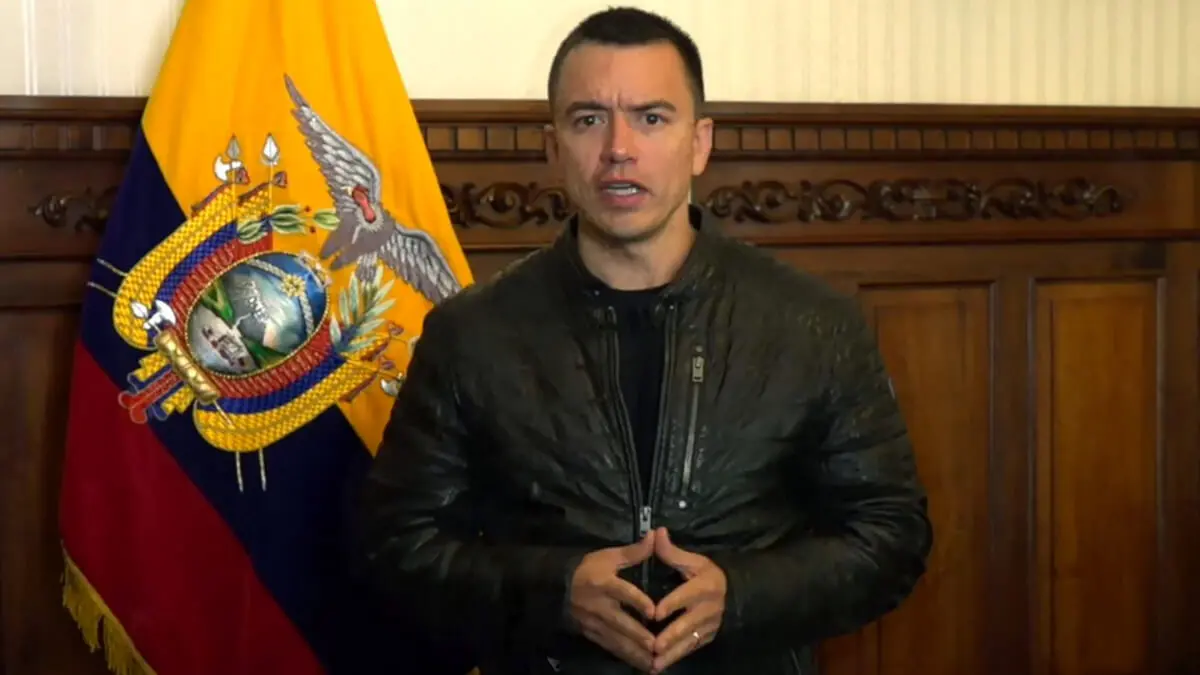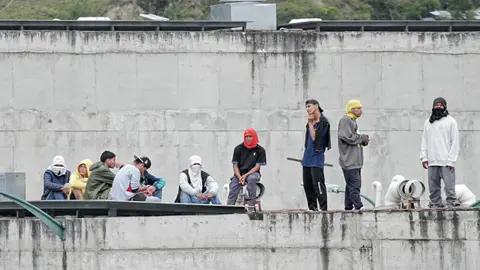Ecuador, from paradise to near-failed state

It was not so long ago that its part of the Amazon and the treasure of its Galapagos Islands were Ecuador's main attractions, which, together with a capital like Quito, with one of the most beautiful and best preserved historic centres from the colonial era, made the country one of the most attractive in Latin America.
Although it also had its share of curses, the one that says that countries that find oil wealth in their subsoil end up ruined and with a disjointed society, Ecuador weathered the storm quite well, while the unstoppable advance of drug trafficking, narco-terrorism and, in short, organised crime, did not take too much notice of the country.
The scourge of organised crime
All this changed radically following the Havana agreement between the Colombian government of President Santos and the Revolutionary Armed Forces of Colombia (FARC). Not everyone would end up accepting that peace that put an end to one of the longest and bloodiest wars between a state and an organisation that progressively abandoned its alleged ideals of creating a just and egalitarian society to become a criminal gang in which robbery, extortion and plundering prevailed. Some of those who did not accept that agreement and broke away found in Ecuador a platform for storing, processing, packaging and shipping to the United States and Europe the large quantities of drugs produced in Colombia, Peru and even Bolivia. The gangs multiplied and the prisons became overcrowded with criminals that the police arrested and the judges sentenced. As many as twenty groups were born and developed, each with its own distinctive signs, but with the common denominator of displaying unusual violence, so much so that they caused the last three governments of Ecuador to fail in their programmes to contain this scourge.
The Choneros, the Lobos, the Lagartos or the Tiguerones are the ones who have taken over the largest power plots, which they dispute among themselves with enormous violence, a method of force that they also use against the population, whom they extort, kidnap or murder if they do not agree to their blackmail.
Insecurity has spread to practically the entire country, which has seen the number of homicides increase exponentially every year (7,878 in 2023, an all-time record), while the hasty departure into forced exile of those who left their businesses and homes behind in exchange for preserving their lives and trying to rebuild them in another country has also grown exponentially. Spain has a large number of such migrants, who could write a voluminous joint history of the horror to which they and their families have been subjected.
The growing power of the criminal gangs was shown in all its brazenness with the assassination of presidential candidate Fernando Villavicencio. In this way, they wanted to show that they are the ones in real control of the country. Daniel Noboa, the country's biggest businessman, whose electoral triumph was based on his two main promises: to clean up the economy and, above all, to restore the country's broken security.
Noboa has not yet completed two months in office and is now besieged by the offensive of the gangs, especially the Choneros of Adolfo Macías, alias "Fito", and the Lobos, led with an iron fist by Fabricio Colón Pico, alias "El Salvaje", both escaped from the supposedly maximum security prisons where they were serving their sentences, but where they enjoyed every possible comfort, and from which they directed without apparent problems the criminal activity of their hitmen throughout Ecuador.
The fact that the president has declared his country "in a state of internal armed conflict", and has decreed the deployment of the army to hunt down and capture the leaders of these gangs, allowing the use of any means necessary, however forceful they may be, demonstrates two things: that Noboa is not willing for the state to lose this war, and that the shadow of the controversial Salvadoran president, Nayib Bukele, is beginning to hang over Ecuador. Bukele, in addition to having set up the largest prison in the Americas to hold tens of thousands of gang members in harsh conditions, has not been shy about disregarding respect for the human rights of criminals, which, although severely criticised by numerous political and civil organisations, may well guarantee him a renewal of his presidential mandate almost by acclamation.
The Ecuadorian gangs have been infiltrated by and are also tributaries of the large Mexican cartels, especially the Sinaloa and Jalisco Nueva Generación cartels, which now cover much of the continent. This is why President Noboa has been comforted by the support offered not only by the US State Department but also by his counterparts in Brazil, Chile, Colombia and Peru. They seem to have realised that the entire continent could fail if the enormous power of organised crime, which has already infiltrated almost all institutions, from political parties to the armed forces, including judges and the police, is not curbed.


